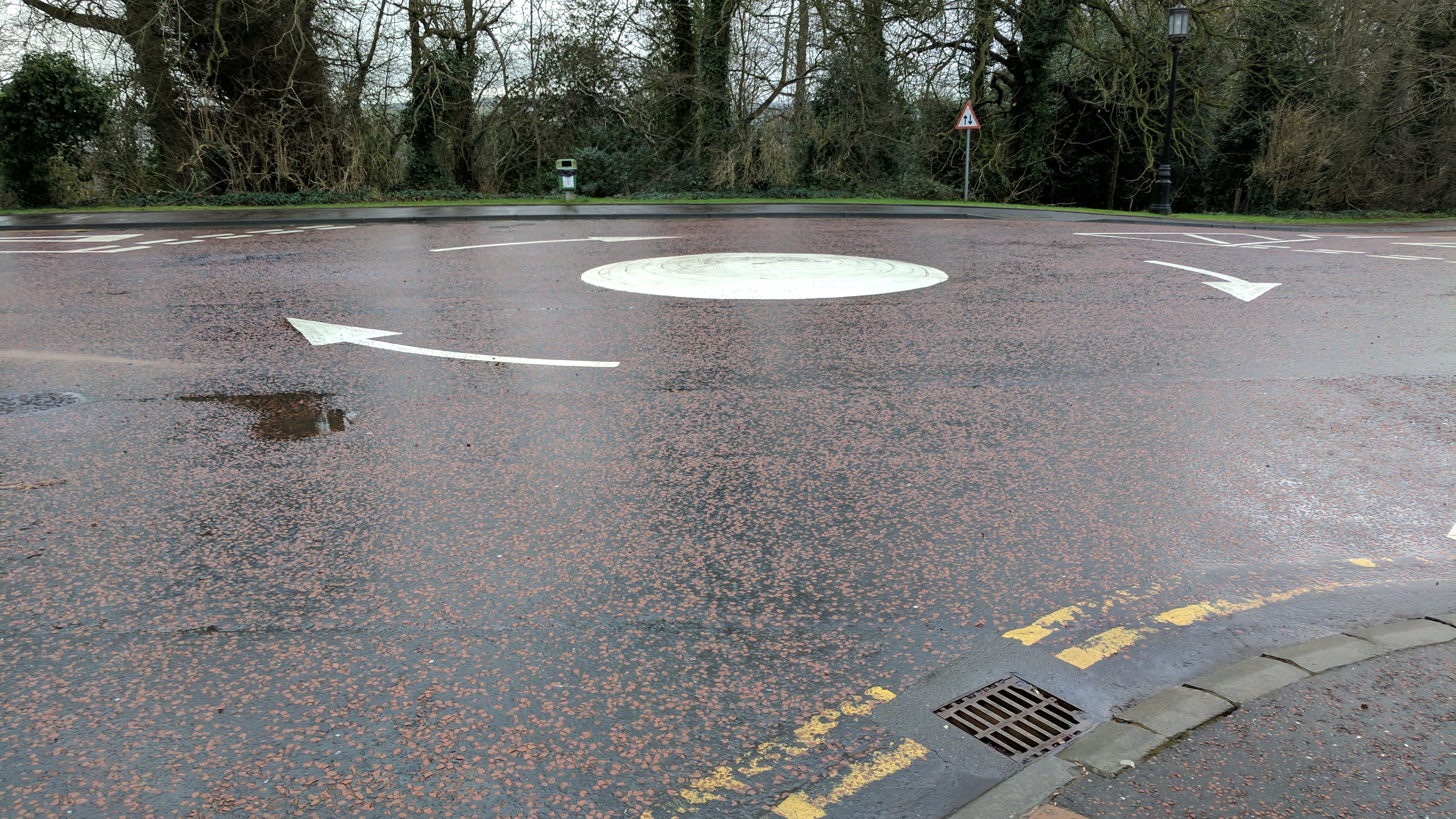It’s time for me to shout from the rooftops who my one, true love is: I love you, traffic circles!
While traveling around the UK for the last four months, whenever I’ve seen a traffic circle (also called a “roundabout”), I can’t help but wish that this was another thing the US would import from the UK. They’re far more likely to be used when building roads here and I love that about the Brits!
The US has “…only 90 roundabouts per 100,000 miles of paved road, while… the U.K. has a mind-boggling 10,200.”
Traffic circles are faster, cut pollution, and can even help cut taxes!
Traffic circles help automobiles get through an intersection 65% faster. Shortened commutes translates to three more benefits of roundabouts that we can all rejoice in, especially environmentalists:
- Less air pollution
- Better fuel economy
- Lower gas costs
Furthermore, according to one study:
On average, carbon monoxide emissions decreased by 33%; carbon dioxide (which accounts for far and away the largest percentage of America’s pollution) is reduced by an astounding 46%. Other gasses (nitrogen oxide, and hydrocarbons) are cut by one-third, and one-half, respectively.
Still not convinced? Let’s talk about money! Do you want to pay fewer taxes? Well, traffic circles save taxpayers an average of $8,000/year!
The best part
Most importantly, roundabouts save lives! According to at least one study, you’re 90% less likely to die in a traffic circle as you would be in an intersection with a traffic light or a stop sign. Traffic circles force drivers to slow down and pay attention to what they’re doing.
But don’t expect the owner-operator of the roads to care about saving lives.
The government has absolutely no incentive to care if you die on their roads. Neither the government, nor the individuals that are employed by it, will face any penalty whatsoever for any death, injury, or damage to any property that was due to their negligence or incompetence.
Enter the roundabout
Roundabouts offer drivers the freedom to interact with each other and flow together. This contrasts sharply with an authoritarian traffic light intersection. Once there, you’re taught to sit down, shut up, and do what you’re told.
Somewhere in a more sensible, future America, ownership of roads will change hands. When this happens, the new owners will reduce costs, reduce pollution, and save lives by adding more roundabouts. Until then, we’ll have to live in this backwards, present-day life where taxpayers are forced to pay for almost every road.
To me, one thing is glaringly obvious: Traffic circles are an excellent example of how freedom works better than government.







